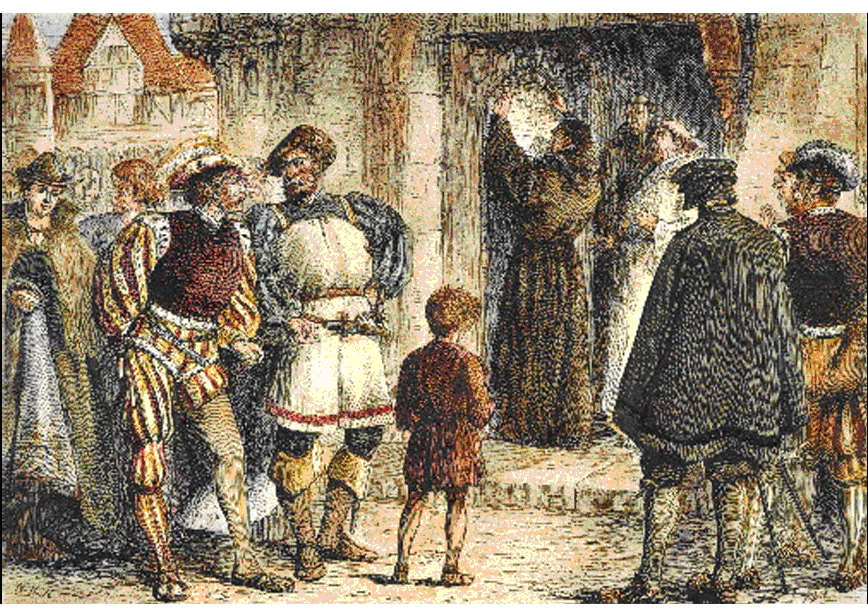| The Reformation |

Posting of the 95 Theses
|
 Posting of the 95 Theses |
Links: |
First , you will read a brief introduction about Martin Luther and the Protestant Reformation. Next, you will read through all of the links provided. You should be filling in your worksheet as you go. There will be links for each category (The Reformation, Martin Luther, King Henry VIII, Pope Leo X, and John Calvin). Finally, you will use the website given to you to look up and define Reformation Vocabulary. Be sure to read carefully because you will soon be taking quizzes to ensure that you learned the information! Martin Luther & the Reformation Reformation- Movement of religious reform. They donít accept the Popeís authority. There were problems in the Catholic church (corrupt leaders- too busy pursuing worldly affairs; broken vows- drink, gamble, marry; monks & priests were uneducated- canít educate others). People called for reforms- they expected higher standards of conduct. Luther was a monk in 1507. He taught scripture at Wittenberg. 1517 he takes a stand against Johann Tetzel (A friar raising $ to rebuild St. Peterís Cathedral). Johann was selling indulgences- People pay him money to forgive their sins (Buy their way into heaven). He posts his 95 Theses on the door of the church @ Wittenberg. 95 Theses were formal statements attacking pardons. Someone takes it to a printer and makes copies. The 95 Theses In 1517, Luther decided to take a public stand against the actions of a friar named Johann Tetzel. Tetzel was raising money to rebuild St. Peter's Cathedral in Rome. He did this by selling indulgences. An indulgence was a pardon. It released a sinner from performing the penalty that a priest imposed for sins. Indulgences were not supposed to affect God's right to judge. Unfortunately, Tetzel gave people the impression that by buying indulgences, they could buy their way into heaven. Luther was troubled by Tetzel's tactics. In response, he wrote 95 Theses, or formal statements, attacking the ďpardon-merchants.Ē On October 31, 1517, he posted these statements on the door of the castle church in Wittenberg and invited other scholars to debate him. Someone copied Luther's words and took them to a printer. Quickly, Luther's name became known all over Germany. His actions began the Reformation , a movement for religious reform. It led to the founding of Christian churches that did not accept the pope's authority. The Reformation begins! ē Donít accept Popeís authority ē Win salvation only by faith in Godís gift of forgiveness ē All church teachings should be based on words of the bible ē All people of faith are equal- donít need priests or pope to interpret the bible. Responses to Luther Pope doesnít take him seriously until he sees how fast his ideas spread. Pope Leo threatened to excommunicate Luther if he didnít take his statements back. Holy Roman Emperor Charles V also opposed his teachings and held a trial at Worms in 1521 (Diet of Worms) Luther refused to take his statements back Edict of Worms was issued- Declared Luther an outlaw & heretic (performed an irreligious Act) |